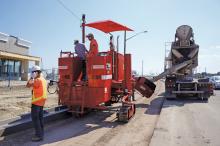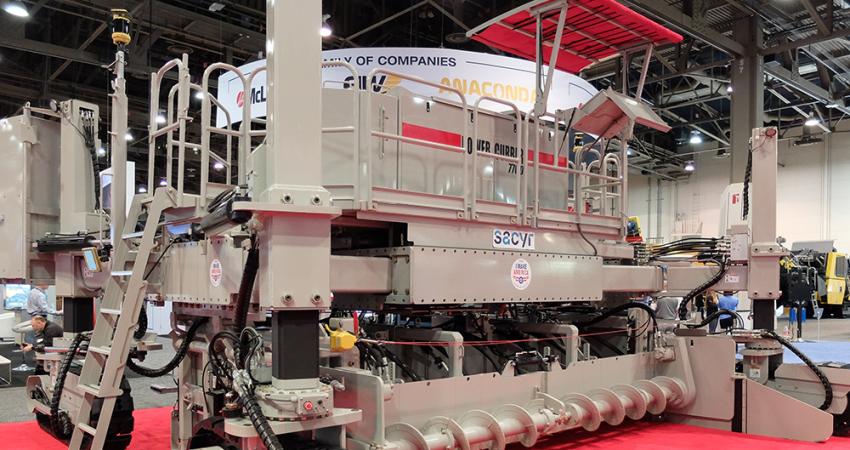One of the key changes in the market that Power Curbers has observed is with the growing interest in machine control solutions amongst its customers.
Power Curbers said that there has been a massive change in customer demand for machine control systems in the last 12 months. Typically, just 10-15% of the firm’s production run from the North Carolina plant has been for equipment that is machine control-ready. However, in 2018 a substantial change was noted with machine control-ready machines accounting for around 50% of orders.
While many of these units will initially be used along with conventional stringlines, Daniel Milam, marketing coordinator at the firm said the companies are clearly making themselves ready to utilise stringless technology for slipforming in the near future. This is a significant change as it highlights how many slipforming contractors are now preparing to switch to using stringless operations. Milam commented, “The change began last year, even with smaller contractors.”
He explained that with the slipforming duties often carried out by subcontractors, being able to operate equipment without a stringline is now a more common requirement from main contractors. He said, “They want that accuracy.” And he added that the ability to work stringless is probably more common for barrier work, which is typically carried out on larger highway operations.
According to Milam, the small contractors that specialise in slipforming are now aware of the benefits from machine control technology and are also prepared to invest in these systems. The fact that business levels are good has given them the cashflow to buy new equipment and technology.
One of the firm’s customers in Virginia had three slipformers using conventional stringline technology. However Milam said, “He was seeing the industry was changing so he sold all his machines.” Milam added that the contractor then bought new units and equipped them with technology from
The firm can also fit
The firm has been supplying machines with machine control packages from Leica Geosystems and
Demand for new equipment is healthy and Milam said, “Things have been really good and we’ve been selling machines all over the world.”
He commented that the export market for new machines has been particularly in Central America and Asia. “India’s been very busy,” he said.
The strong market for highway construction in India has been helpful to the firm, which has supplied one of its larger four track units into the country. And with India committing to building some of its roads from concrete, there is a potential for more sales in the future.
Meanwhile, the company also supplied a machine to a customer in Thailand. This has been used for some of the first concrete slipform paving work in the country, paving a road in two passes and using an offset for the shoulder.
The firm’s dealer for South East Asia is keen to encourage the use of concrete in road construction and the positive results from the machine working in Thailand in terms of productivity and finish quality will help. The project is not without its challenges and Milam said that the conditions are difficult.
As a result, he said that the contractor is taking care to ensure the roadway will last. He said, “It’s a really thick road and it’s got lots of reinforcement in it.”
With emissions requirements changing, the 5700-C is also benefiting from the installation of a new Tier 4 Final diesel. However, there will not be changes to the height and width of the machine and its slipforming characteristics will remain the same.
In addition, production changes are being seen at the plant. Until now, the 5700 models and 7700 models have been built on separate production lines but manufacturing of these is now being integrated into the one line.
Different parts of the machines are being completed as sub-assemblies, but having the two models on the one line is allowing
Power Curbers to ramp up production from its factory.






